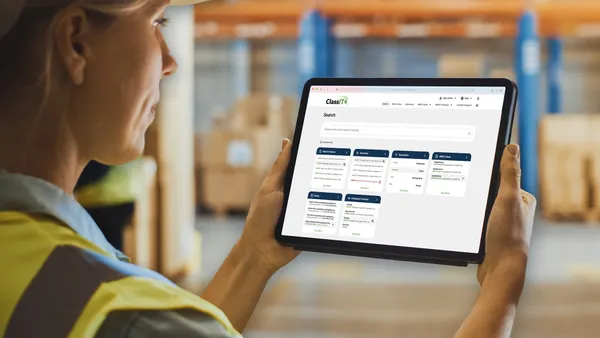Dive Brief:
- IBM is collaborating with various gold and diamond industry leaders — including Asahi Refining, Helzberg Diamonds, LeachGarner, Richline Group and UL — to track and authenticate their products with blockchain throughout the supply chain.
- The collaboration, called TrustChain, is currently tracking six different types of diamond and gold engagement rings as the initial pilot project, according to a press release sent to Supply Chain Dive.
- The press release also stated that TrustChain "provides digital verification, physical product and process verification, and third-party oversight" for the precious metals moving along the supply chain.
Dive Insight:
While IBM's blockchain initiatives are generating a lot of buzz in the supply chain industry, the tech company is not the only one experimenting with it. In fact, developing blockchain solutions for goods like diamonds and gold are a growing trend for luxury markets as a way to validate and verify their point of origin and authenticity.
Chris Kirchner, CEO of blockchain-provider Slync, said most of Slync's customers are freight forwarders and the international and domestic logistics industries, but high value luxury goods are a top customer, as well. According to Kirchner, that's because international shipments and product traceability for high-end goods are the most sought-after uses for blockchain right now.
It's easy to see why: if you sell engagement rings, you want to make sure you're selling "the real thing" to consumers.
Kirchner said some decry blockchain as pure hype because they misread company intentions and the aggressive marketing campaigns that describe blockchain as "the future of the industry."
"IBM has obviously been very bold on the marketing, but I also think many of their statements are very forward leaning, and people are mistaking those forward statements for statements of reality today," he told Supply Chain Dive.
All the news about Walmart, Maersk and IBM accelerating blockchain initiatives shouldn't be treated as stand-alone cases, Kirchner said, but as the development stage for the new tech.
For the next 18-24 months, he said, "I see blockchain putting points on the board, tangible metrics, specific figures on what benefit it is to customers, and I think that’ll be the validation for the technology. In the next 5 years I see it being deployed on a global scale."
Kirchner doesn't think companies will all participate in one platform, he called that "far-fetched." But he does think more blockchain platforms will start popping up to meet supply chain visibility demands.












